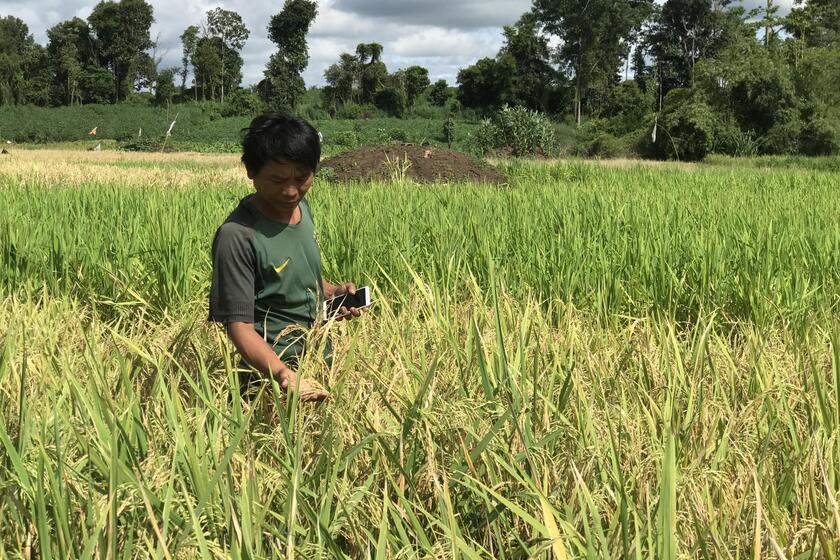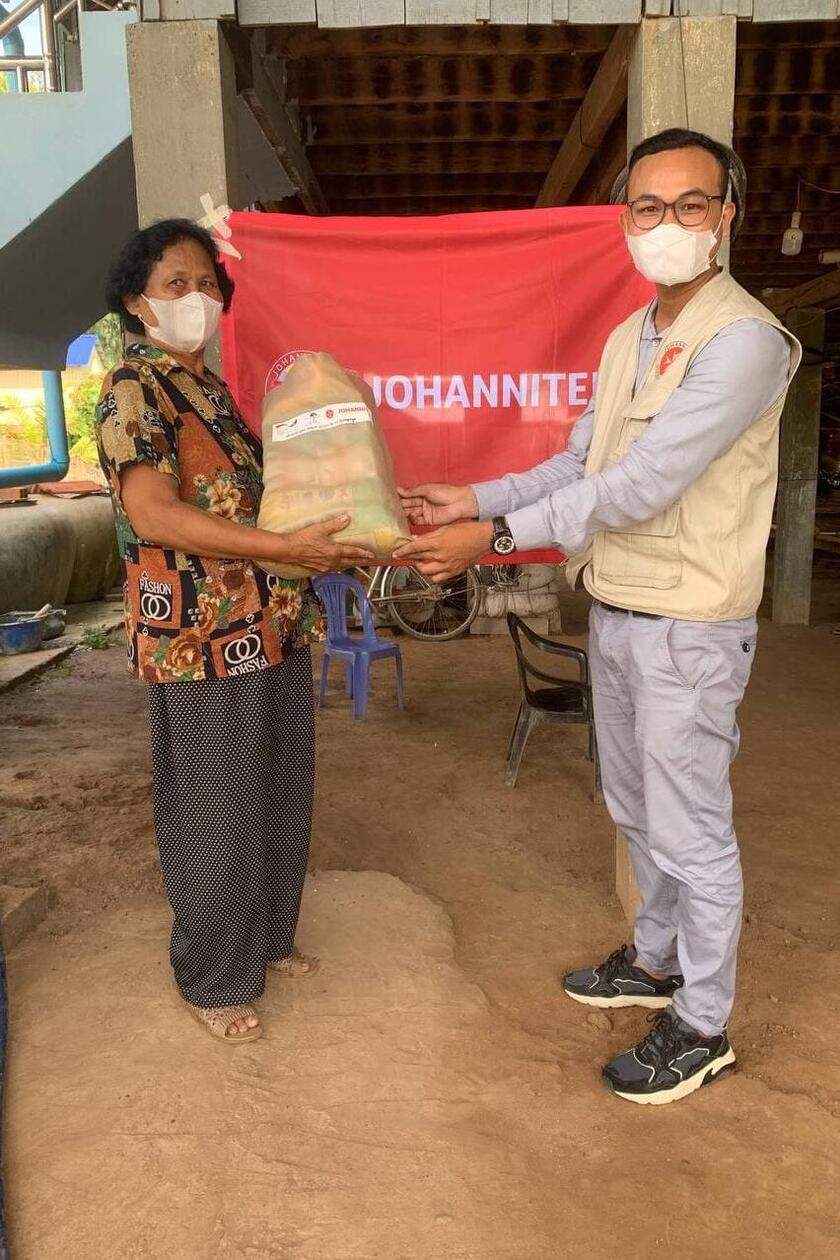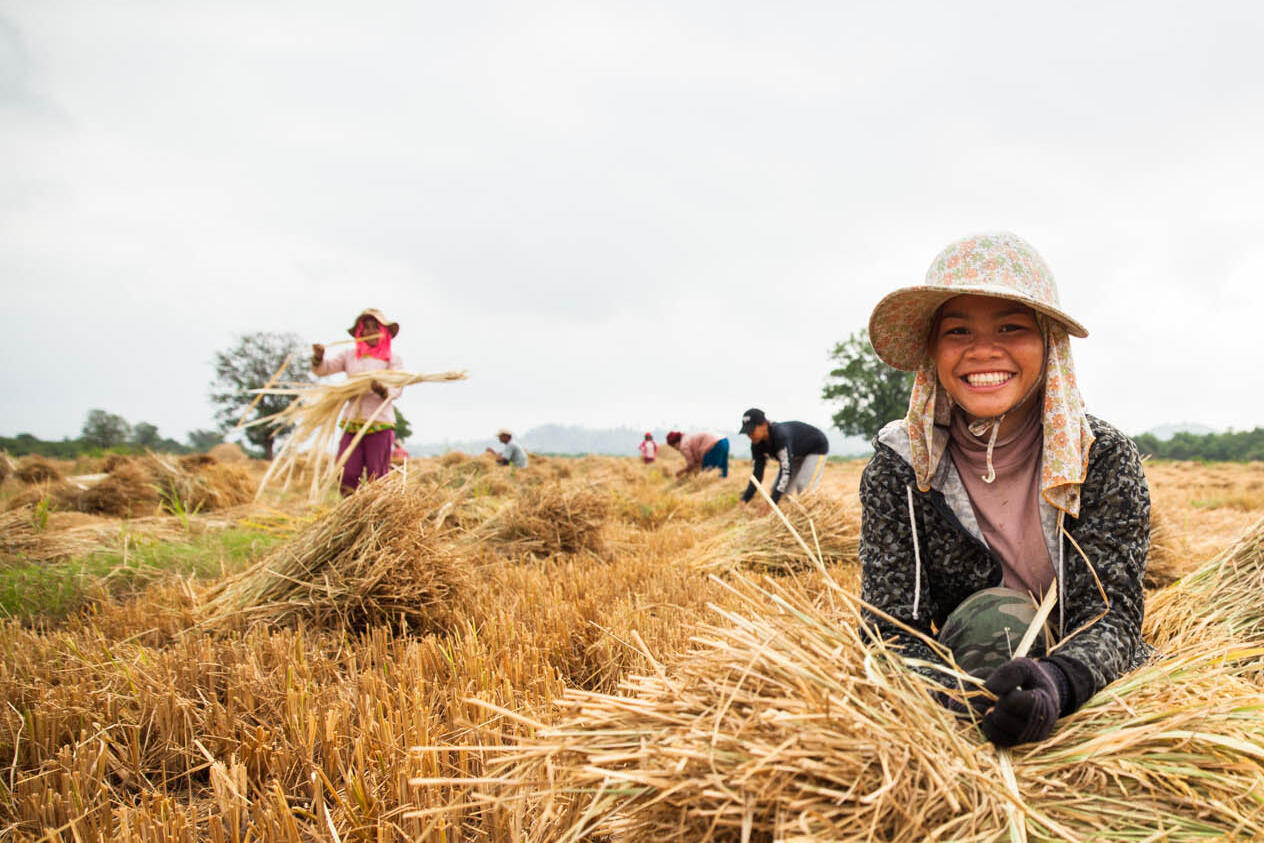Cambodia: Against poverty in times of Corona
What we do against Corona worldwide
We are adapting our current project activities to respond to the worldwide corona pandemic.

Berlin / Phnom Penh, 16 November 2021
Malnutrition and health problems are symptoms of deep poverty. With a multi-sectoral approach, local Johanniter partners in Cambodia are slowly reducing the causes. The Corona pandemic poses special challenges for people and organisations.
The name says it all: Live&Learn Cambodia has taught many people in Ratanakiri province methods to change their agricultural activities over the past two years. 1000 farmers have been trained to use innovative and adaptive agricultural techniques.
"After the trainings, I know what kind of seeds to use and I have enough tools now," says Somaly, a 39-year-old woman and mother from Kratie town. She recently experienced a drought in the region, which particularly affected the water-intensive rice cultivation that so many people depend on for their livelihoods. Spades, hoes, rakes or pipes for drip irrigation systems were only part of the measures to get back on their feet. The key was to change techniques and use drought-resistant seeds.
Better rice yields with less water
Kanaer Kampraer, an indigenous Tompun farmer from a village in Ratanakiri province, has switched his traditional rice farming to the System of Rice Intensification(SRI). "We used to depend on seasonal rains, which are expected between March and April every year. With the traditional method, the cultivation period is very long and there is a risk that harvests will be affected by floods and droughts," Kompraer explains.
Although the preparation and sowing in rows is more time-consuming at the beginning, the seedlings grow faster and stronger and can be transplanted earlier. Even more important is the water saving: whereas in the past 5-10 cm of water had to stand in the field, the soil only needs to be kept moist.
Today I need less seed and the harvest time is shorter. Now I can see that the yield is increasing.

Training online or in small groups as a result of Corona
Such conversions require accompaniment and numerous trainings. What was initially supposed to take place in person was partly conducted online or in small group sessions. Although Cambodians show high awareness of social distancing and other preventive measures to reduce the risk of coronavirus infection, the virus has had a firm grip on Cambodia since 2020, with all its negative consequences. The economic slowdown caused by the pandemic has reduced incomes for many people. Families are the first to cut back on food, and hunger is on the rise as a result. All the more reason to help people now with improved methods and despite all the restrictions.

In order to contain the spread of the coronavirus, our partner Khmer Community Development (KCD) provided people from their project area with hygiene kits at the end of October. 664 families received hygiene kits with soap, washing powder, towels, hygiene gel and surgical masks. Many people can barely afford the materials. "For my son and me, this is enough for almost three months," says gratefully 68-year-old San Heang from Prek Chrey community. She wants to continue to stick to the "3 Do's" - wearing mask, washing hands, keeping distance - in the future.
